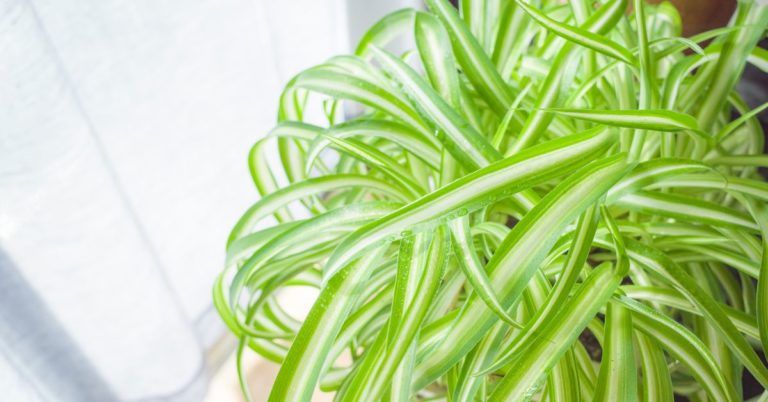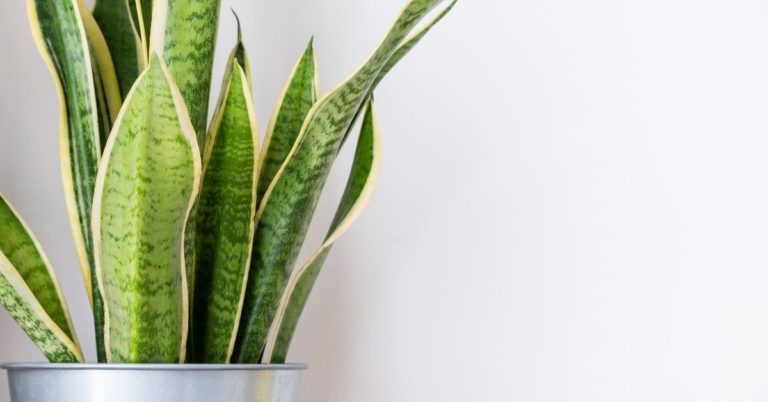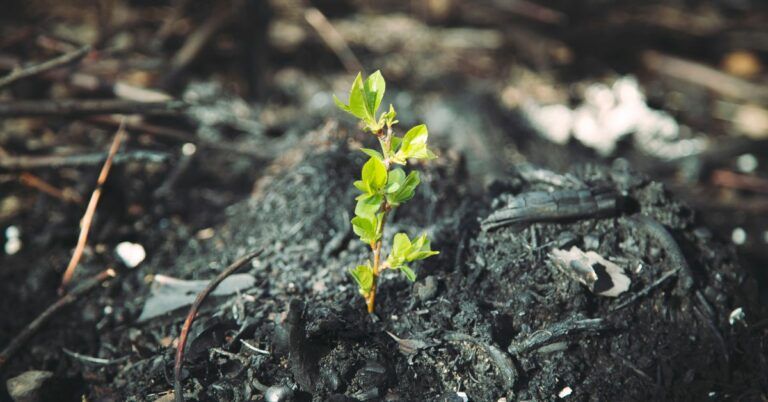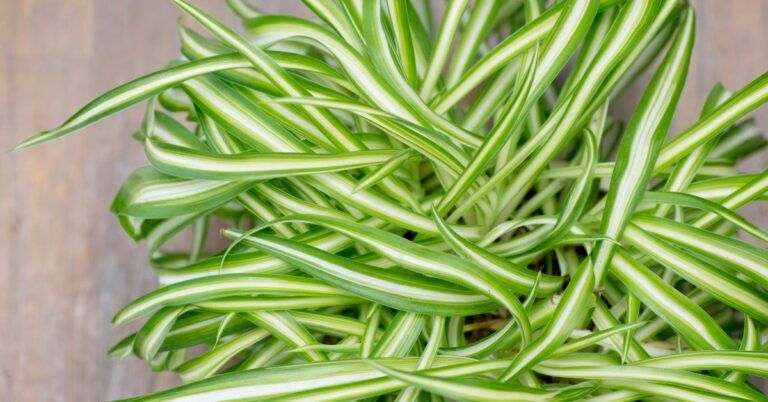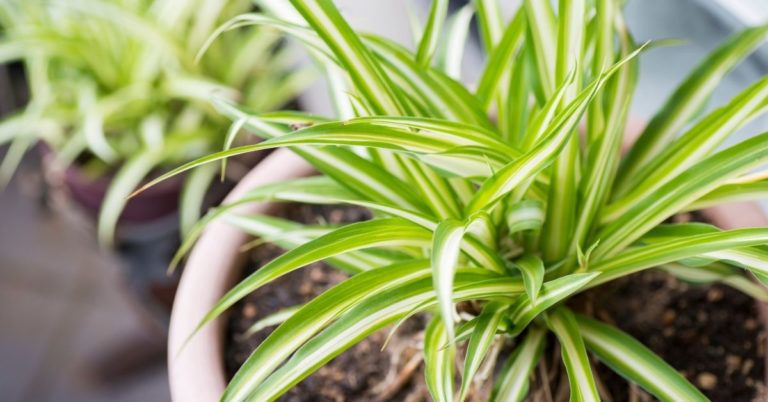Are Snake Plants Toxic to Cats? Find Out How to Keep Your Cats Safe!
We have all seen snake plants at our local grocery store. They are very popular and easy to grow. However, many people are unsure if they are safe for cats.
Many people love the look of the plants, but are snake plants actually toxic to cats?
In short, yes, snake plants can be toxic to cats if they consume the leaves, seeds, or stems. So, if you have a cat that likes to eat plants or other objects, it is best to keep them away from snake plants.
We’ll find out more about snake plants and cats in this article. In particular, we will talk about:
- Is snake plant actually toxic to your cat?
- What happens if a cat eats a snake plant?
- How to stop your cat from eating snake plants?
- And more…
So let’s dive right in.
Is Snake Plant Toxic to Cats?
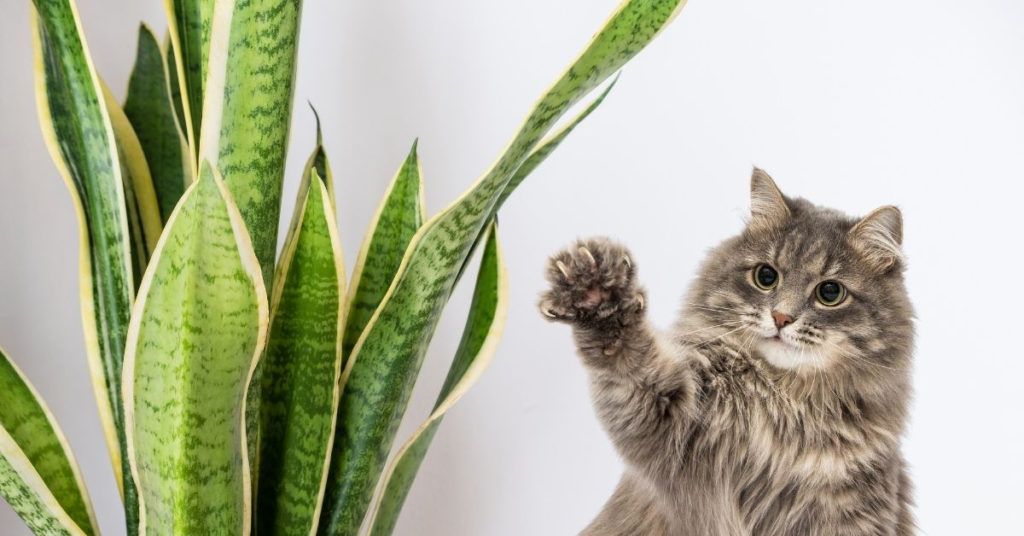
Snake plants, or Sansevieria trifasciata, are a type of succulent that is mildly toxic to cats and other pets.
According to the ASPCA (American Society for the Prevention of Cruelty to Animals), the plant contains saponins that can cause gastrointestinal problems in cats if they consume it.
If you have a cat at home, you need to be careful not to let them eat the snake plant and instead provide them with other forms of entertainment.
Although most cats aren’t fond of this plant, some will eat it when they get the chance.
On the other hand, many homeowners choose to invest in plants that are safe for cats.
This is because some plants are toxic to cats and can make them very sick.
Snake plants, while not deadly, can cause gastrointestinal problems in cats if they eat them.
If your cat swallows any part of this plant, it could experience vomiting, diarrhea, and even seizures.
So if you’re a cat owner, be sure to take this into consideration before purchasing any plants for your home.
In fact, a cat may come into contact with these plants and develop a skin allergy due to repeated skin contact with a snake plant.
As fast as possible, if you feel your pet has contacted one of these plants, immediately bring it to your vet and explain the situation.
Also read: How Often To Water Snake Plant: A Guide For New Plant Parents
What Happens If a Cat Eats a Snake Plant?
If a cat eats a snake plant, it can be harmful and toxic. The leaves and sap of the snake plant contain a chemical substance called saponin.
Saponins are chemical substances that may be found in a wide variety of plants, seeds, and vegetables, including herbs and snake plants.
If you are a cat owner, it is vital to be aware of the dangers that snake plants pose to your pet.
Signs and symptoms of snake plant poisoning in cats include nausea, vomiting, diarrhea, and swelling of the lips, tongue, mouth, and throat.
If you suspect that your cat has been poisoned by a snake plant, take them to the veterinarian immediately.
Fortunately, most cats make a full recovery within a day or two after eating snake plants.
The toxins found in the plant usually won’t cause long-term health problems for cats, and they will vomit up any remaining plant parts.
Though it may seem like a trivial task, fulfilling your pet’s needs is very important. This includes providing food and water and going on walks or playing with them.
If you do this, there is less chance of eating snake plants, which can be toxic to cats.
Will Snake Plant Kill My Cat?
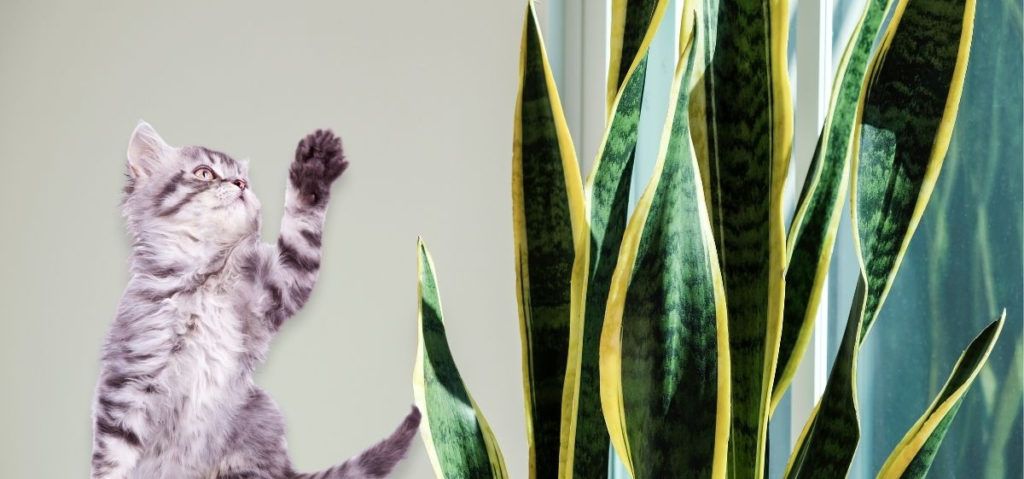
No, snake plants will not kill your cat as long as you keep them out of reach.
Snake plants are mildly toxic to cats and other pets. Cats will usually not overeat snake plants because of the bitter taste, but they can still get sick if they eat too much.
Signs that your cat has eaten a snake plant include vomiting, diarrhea, and lethargy.
Though snake plants are considered mildly toxic to most pets, it might be dangerous if your cat has eaten a large amount of the plant.
However, as long as the amount of snake plants eaten is tiny, your cat should be fine.
In some cases, the leaves and flowers of a snake plant (Sansevieria) can cause vomiting or diarrhea in cats.
The plant’s toxic effect is due to its saponins, which can cause gastrointestinal upset in some animals.
Can I Get a Snake Plant if I Have a Cat?
Yes, you can get a snake plant if you have a cat. Snake plants are a great way to add a little color to your house without having to spend a lot of money.
You can get a snake plant for about $20, and the snake plant will live for about 10 years.
You should always be aware of the plants in your home and whether they are toxic to your pets.
Snake plants, while not deadly, can cause stomach problems if eaten by cats.
You can put the snake plant pot in a location where your pet doesn’t come often or try to train your cat not to go near the plant.
Read more: Beginner Snake Plant Care: How to Care for a Snake Plant
Will Cats Try to Eat Snake Plants?
For the most part, cats will not eat snake plants. However, this rule has some exceptions, so it is always a good idea to keep your cat away from these plants.
Again, most cats will shun these plants, but certain hardheads are unable to resist their attraction.
So, some cats will try to eat the leaves of snake plants, but they will generally not eat the root.
Snake plants, or Sansevieria trifasciata, are not very harmful to cats if they consume them in small amounts.
However, if your cat has swallowed a lot of snake plants, it might be dangerous.
Cats may become sick from eating snake plants and might experience vomiting, diarrhea, and lethargy symptoms.
So it is a good idea to keep your cat away from snake plants.
If you think your cat ate a snake plant, it is best to take it to the veterinarian.
While most plants are not poisonous to cats, snake plants contain calcium oxalate crystals that can cause irritation and swelling of the mouth, throat, and stomach.
If left untreated, this can lead to serious health problems for your cat.
Despite the fact that cats are predominantly carnivores, in the wild, they will nibble on plants for the extra nutrients and fiber they provide or simply because they enjoy the flavor.
At your home, cats may try to eat your snake plants of boredom or because they are drawn to the plant’s leaves.
Also read: Can a Snake Plant Live Outside? (Answered)
Are Cats Afraid of Snake Plants?
No, cats are not afraid of snake plants. Most cats will not eat snake plants, but a few will try if they see them.
If your cat tries to eat a snake plant, the most common reason is that they just want to play with the leaves.
Most cats are not going to be tempted by the bitter taste of the plant. The leaves contain calcium oxalate crystals, which cats dislike.
If your cat eats some of the leaves, it will likely experience a mild upset stomach.
How do I Stop My Cat From Eating Snake Plant?
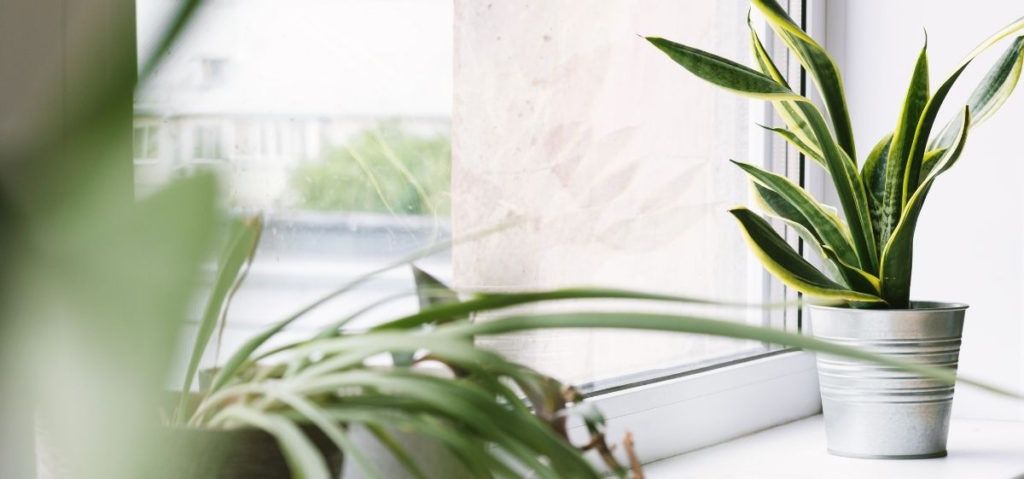
Although most cats will not eat snake plants, there are some exceptions to this rule. If your cat has a hard head, it may try to eat the plant’s leaves.
They may also be drawn to the fragrance and look of the snake plants. Furthermore, they may be interested in the plant and want to examine what’s within.
If your cat loves to eat snake plants, you can try to keep them away by:
Keep the Snake Plant Away From Your Cat
First, try to keep your cat away from the plants.
You can put the snake plant in a location where your pet doesn’t come often, or you can try to train your cat not to go near the plant.
With bigger snake plants, one option is to keep them in a room that cats can’t get into. This is easier said than done, but it’s worth a try.
If you have smaller plants, you may display them on high shelves or put them on the wall.
Keep in mind that cats are superb climbers and jumpers when determining where to place your plants.
Use a Cat Repellent
If your cat is attracted to the scent of snake plants, try to use a cat repellent that contains essential oils like lemon eucalyptus. This will help in keeping your cat away from the plant.
There are many available, and they all work to keep your cat away from plants.
It is a good idea to use a cat repellent spray on any plants you want your cat to stay away from.
You can also apply a weak vinegar solution to the leaves; while this will not harm the plant, it will significantly deter cats.
Keep Your Cat Entertained
If your cat is constantly sniffing around the snake plant, you might try to keep him occupied by playing with toys or giving him a treat.
Cats are natural hunters, and if they find something interesting, they will probably want to eat it.
Regardless of its level of activity, every cat needs regular exercise and stimulation.
In the same way that little kids get bored, your cats will try to think of their own ways to keep themselves busy.
When they have a lot of energy but don’t know what to do about it, they’ll let their curiosity get the best of them.
This means many cats will go around the house and look at everything that looks cool. In this case, a curious bite on a snake plant might develop into a full-blown habit.
Conclusion
Snake plants, also known as the mother-in-law’s tongue, are toxic to cats. Your cat may get nausea, diarrhea, and other stomach issues if they eat even a tiny amount of this plant.
So, if you have a cat at home, it is best to keep them away from snake plants.
After all, the best way to protect your cat from eating a snake plant is to keep it away from the plants.
If you feel your cat has contacted or even eaten a part of the snake plant, please bring it to your veterinarian immediately and describe the situation.
Fortunately, if your cat does eat a snake plant, most will only suffer mild toxicity and be back to their usual happy selves within a day or two.
I hope this article answers whether snake plants are dangerous to cats.
Now I’d like to hear from you:
Do you know any houseplants that are safe for cats? Or do you have any tips on how to keep your cat entertained?
Please share your tips to the other cat lover and gardeners by commenting below.
Also, if you want to learn more about keeping your houseplant happy, read our article about Houseplants 101.
Until then, happy gardening!
